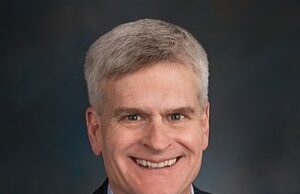WASHINGTON, D.C. – April 30, 2015 – (RealEstateRama) — Earlier today, the House Transportation-Housing and Urban Development (THUD) Appropriations Subcommittee held its mark-up of the Fiscal Year (FY) 2016 THUD funding bill. The bill provides $55.3 billion in discretionary spending for transportation and housing programs, but falls $1.5 billion short of what HUD says it needs just to maintain current programs in FY 2016 and is $9.7 billion less than the Administration’s budget request.
The bill also contains several controversial policy provisions, including one that would ostensibly eliminate the Housing Trust Fund (HTF). In a move the Committee claims would maintain HOME funding at last year’s $900 million level, the bill would transfer funds that would otherwise capitalize HTF in calendar year 2016—estimated by the Committee at $133 million—into the HOME account to buttress its otherwise reduced appropriation, which the bill sets at just $767 million. The bill further prohibits the transfer, reprogramming, or credit of any funds to HTF. NCSHA strongly opposes both the reduction in HOME program funding and the elimination of the Housing Trust Fund.
Subcommittee Chairman Mario Diaz-Balart (R-FL) opened the markup by highlighting key areas of the bill, including $3 billion for the Community Development Block Grant (CDBG) and $900 million for HOME, both equal to their FY 2015 funding levels. Diaz-Balart did not mention the bill’s actual appropriation of just $767 billion to HOME or its transfer of funding from the HTF to HOME to fill the gap between the proposed appropriated level and the $900 million he claimed the bill provides. He did however note that, in order to provide adequate funding for other HUD programs, the bill makes strategic reductions to capital accounts, proposes no new programs or fees, and reduces overhead. Diaz-Balart added that the bill adheres to the FY 2016 budget caps imposed by the Budget Control Act of 2011, and although not perfect, it “takes steps to make sure our…all of your priorities are taken into consideration” if sequestration goes into effect in FY 2016.
Ranking Member David Price (D-NC) remarked that many of the Appropriations Subcommittees were operating under serious constraints given the FY 2016 budget cap. Referring to the THUD bill, he said “We are not investing nearly what we should in our housing and transportation infrastructure…not enough to even sustain it.” Price then stressed the importance of a bipartisan budget deal this year, arguing that House Republicans need to address the main drivers of the deficit — tax expenditures and entitlement spending—and stop forcing “critical domestic investments to bear the brunt of deficit reduction.”
Appropriations Committee Chairman Hal Rogers (R-KY) called this a “tough bill” and commended Diaz-Balart for negotiating it as much as possible. Rogers said the bill “strikes an appropriate balance by prioritizing programs that provide critical services to the American public while taking a targeted, thoughtful approach to reducing non-essential or inefficient programs.” He highlighted full-funding for tenant-based rental assistance renewals and the importance of capital programs, including CDBG, SHOP, and HOME. He added that the bill would fully-fund project-based rental assistance program for 12 month contracts at $10.65 billion, but this falls $106 billion short of the $10.8 billion HUD estimated it would need to fully fund the project-based Section 8 program.
Appropriations Committee Ranking Member Nita Lowey (D-NY) took issue with the bill’s overall low funding level and the various policy riders, especially those related to transportation. Lowey was the only Committee member to address how HOME was funded in this bill. She expressed deep concern that by taking money from HTF to pay for HOME, the Committee would “perpetuate another gap in the spectrum of affordable housing.” She remarked that she would address these issues and the policy riders during the full Committee markup which has not yet scheduled.
The Subcommittee unanimously voted to favorably report the FY 2016 THUD bill to the full Committee on Appropriations.















